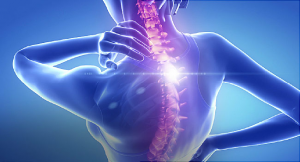Is your stress making your pain worse?

In these times of uncertainty you may be experiencing stress or anxiety. What you may not know is the effect this stress can have on the body! Stress evokes a biological response, via the release of stress mediators which have an effect on the immune system (Hanson, McCullagh & Tonymon, 1992) . Research suggests that psychological distress can attribute to up to 30% of the relationship between pain and long term disability (Hall et al., 2011) . This extends to the sporting population: evidence shows that as life stress increases so to does the rate and severity of injury (Hanson, McCullagh & Tonymon, 1992).
Is your neck and back pain affected by stress?
Lower back and neck pain are some of the most common conditions we see here in clinic, and have been linked to increased levels of stress;
-
Low back pain . As percieved stress increases so too does the pain and disability associated with chronic low back pain. In the short-term after a lower back injury there is a structural injury that causes pain- but in chronic pain states there is an increase in psychological and social attributes to level of pain and disability (Weiser & Cedraschi, 1992).
-
Neck and upper limb pain. Percieved stress and general distress has been linked to increased neck and upper limb symptoms (Bongers, Ijmker, van den Heuvel & Blatter, 2006).
Our skilled physiotherapists employ a model of biopsychosocial care which includes not only looking after the physical component of pain, but also its social and psychological triggers. As musculoskeletal specialists we employ massage, joint manipulation and exercise programs to help reduce structural pain and dysfunction. We also provide advice and direction on beneficial lifestyle changes and support you in seeking psychological intervention if required.
If you feel that stress or tension is increasing your pain, or if you have had a new pain complaint that has uncertain cause, we can help. We are still open here at Fix It Physiotherapy and are taking every precaution to provide a hygienic and safe environment. We are also now working towards providing Telehealth and home visit appointments. Give us a call today if you are interested!
Bongers, P., Ijmker, S., van den Heuvel, S., & Blatter, B. (2006). Epidemiology of work related neck and upper limb problems: Psychosocial and personal risk factors (Part I) and effective interventions from a bio behavioural perspective (Part II). Journal Of Occupational Rehabilitation, 16(3), 272-295. doi: 10.1007/s10926-006-9044-1
Hall, A., Kamper, S., Maher, C., Latimer, J., Ferreira, M., & Nicholas, M. (2011). Symptoms of depression and stress mediate the effect of pain on disability. Pain, 152(5), 1044-1051. doi: 10.1016/j.pain.2011.01.014
Hanson, S., McCullagh, P., & Tonymon, P. (1992). The Relationship of Personality Characteristics, Life Stress, and Coping Resources to Athletic Injury. Journal Of Sport And Exercise Psychology, 14(3), 262-272. doi: 10.1123/jsep.14.3.262
Weiser, S., & Cedraschi, C. (1992). Psychosocial issues in the prevention of chronic low back pain—a literature review. Baillière’s Clinical Rheumatology, 6(3), 657-684. doi: 10.1016/s0950-3579(05)80132-3 .
Yaribeygi, H., Panahi, Y., Sahraei, H., Johnston, T. P., & Sahebkar, A. (2017). The impact of stress on body function: A review. EXCLI journal, 16, 1057–1072. https://doi.org/10.17179/excli2017-480

